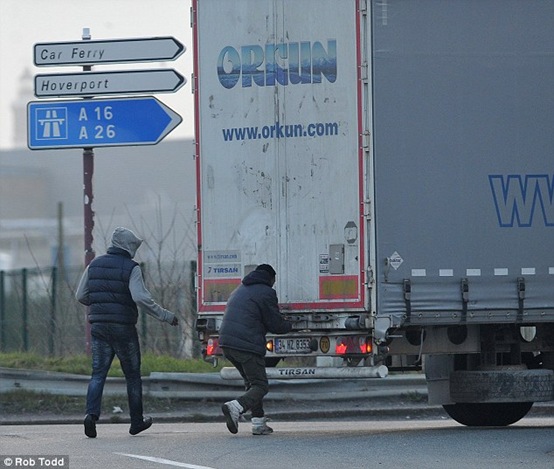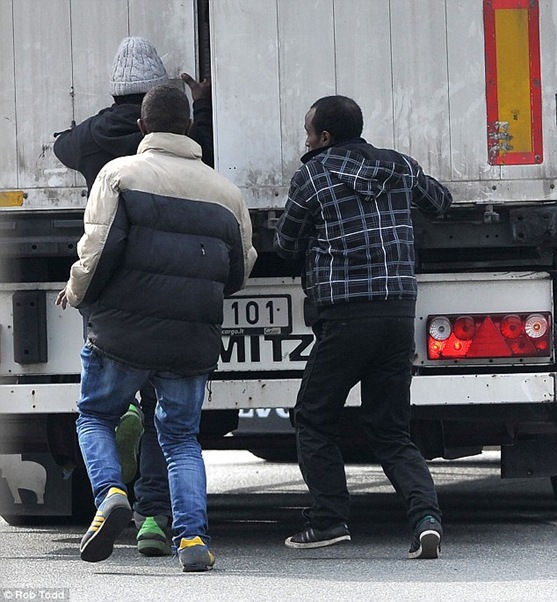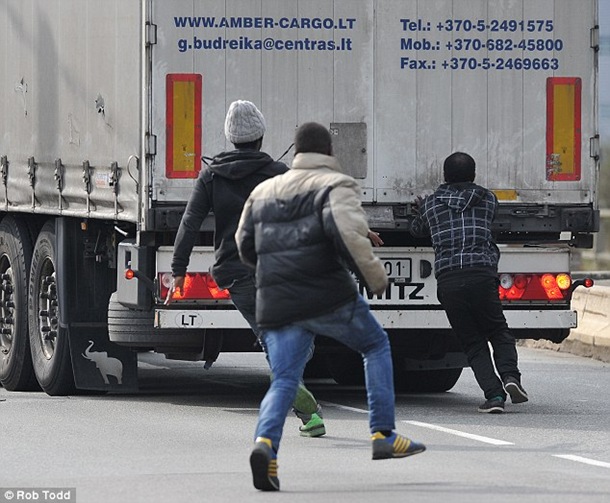Daily Mail
April 7, 2014

Not so long ago, Pam Dumbleton would have been roasted alive. There’d have been booing and cries of ‘racist!’. There she was in the middle of a particularly combative episode of BBC1’s Question Time the other day, and she was not merely raising the issue of immigration. She was lamenting it.
What’s more, she was sitting in the front row of the Broadway Theatre in Barking, one of Britain’s most ethnically diverse communities.
‘Isn’t it time the Government listened to the people about the effect immigration is having in changing our communities?’ asked the 69-year-old retired office administrator. ‘We are now the complete minority.’
By ‘we’, she meant members of the British-born white working class who are, indeed, now a minority in this bit of London’s East End, according to the Government’s latest statistics.
And that demographic shift is accelerating. Two-thirds of schoolchildren in the Borough of Barking and Dagenham now are from an ethnic minority; at one primary school near Pam’s council estate, the figure is 94 per cent, while less than a quarter speak English as a first language.
This is one of the poorest parts of the South-East, with serious unemployment and the country’s highest birth rate to boot. Even Poundland is being squeezed here. Several 99p stores have opened up on the main drag, only to be undercut, in turn, by a cheeky new 97p shop. Apparently, an 89p store is imminent.

So, was Pam Dumbleton fanning the flames of racial tension with her remarks on Question Time? Hardly. There were a few liberal groans and applause for a man who complained that the BBC should not be giving airtime to such inappropriate opinions. But, interestingly, none of the politicians on the panel chose to quarrel with Pam.
Because, as I accompany her through Barking, it becomes clear that she represents the concerns of a much wider constituency than simply the old white working class. ‘This place has just changed beyond all recognition and in such a short time,’ says Pam, walking with her friend, Joyce Cracknell, an 80-year-old child of the Blitz.
Between them, they run the residents’ association for their 1,200-home estate. ‘We’ve always had immigration here and we’ve always got on together,’ says Joyce. ‘But then we had this sudden influx from the EU and it’s too much.’
Until recently, she was a Labour activist, but has now left the party. Both she and Pam are planning to stand in next month’s council elections as UKIP candidates. ‘Tony Blair opened our borders and they’ve never closed,’ says Pam. ‘Now, we’ve got people around us living in sheds, or cramming ten at a time into a tiny flat.’
One of her two sons, she says, has moved to Cornwall. ‘He doesn’t want to send his children to a school where most children don’t speak English.’
Things are unlikely to change any time soon. Although George Osborne announced a new £150 million rail link for Barking in last month’s Budget — to ‘unlock’ the building of 11,000 new homes — this week’s report by the think-tank MigrationWatch summed up the scale of the challenge ahead.
It warned that if Britain is to accommodate all the EU migrants expected here over the next four years, then we will need an extra city the size of Manchester.
You need only look at the current pattern of migration to realise that many of them will end up in this borough (the owners of the Lithuanian supermarket off the high street certainly think so; they’re opening a new Lithuanian cafe next door). Given Barking has some of the capital’s cheapest accommodation, it’s inevitable. This week’s extraordinary photographs of desperate migrants risking death as they jump aboard UK-bound lorries merely underline the situation in terms of non-EU arrivals.

